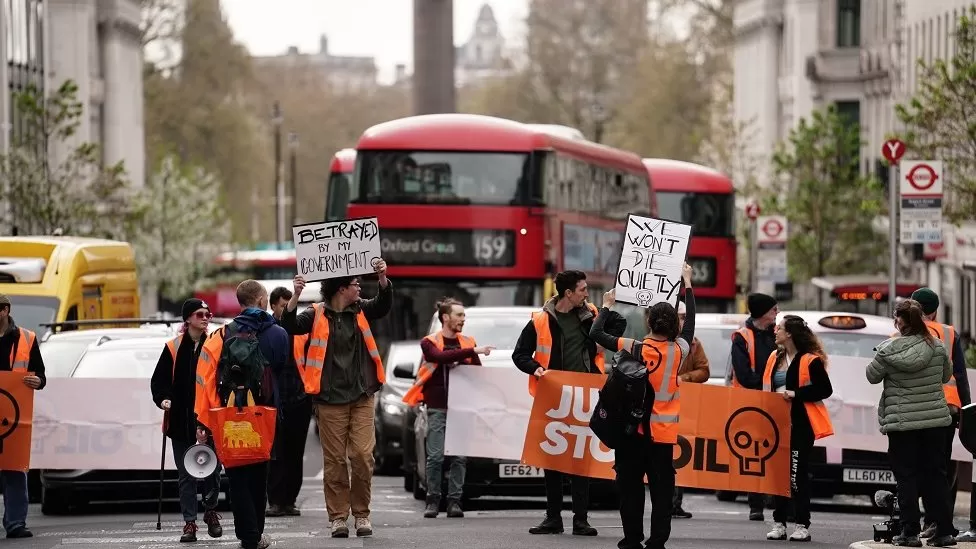Police in England and Wales are to be given new powers to tackle “disruptive” slow walking used by protesters to block roads. The new legislation would give officers more leeway to intervene when protesters attempt to block roads by slow marching. It will need to be approved by Parliament before it comes into force. Just Stop Oil, Insulate Britain, and Extinction Rebellion are among the groups to have used the tactic.
The government says the new law is required because the police lack clarity on when their existing powers can be used. Current legislation gives police the power to set conditions on protests that are likely to cause “serious disruption to the life of the community”. But the government says what this means in practice is not legally clear, leaving forces reluctant to act during certain demonstrations. It has introduced a new law that specifies officers should be able to take into account the cumulative impact of disruption, and whether people are prevented from carrying out day-to-day activities.
They will also be able to take into account the wider geographical impact of protests, rather than just the impact on people who live and work in the area. Home Secretary Suella Braverman said it would “clearly define” when police can step in to stop “selfish” protestors “wreaking havoc in people’s everyday lives”. The legislation will have to be approved by the Commons and Lords before it comes into effect, a process that normally takes several weeks.

‘Deeply troubling’
The new law follows attempts by the government to beef up its broader powers to tackle protests in the Public Order Bill, which recently passed through Parliament and will become law shortly. The legislation will create a new criminal offence for those who seek to lock themselves to objects or buildings.
The government says the new law will allow the police to more effectively tackle “disruptive and dangerous” tactics used by protestors, but has been heavily criticized by civil rights groups. On Wednesday, Volker Turk, the United Nations High Commissioner for Human Rights, said the legislation was “deeply troubling”. He said it imposed restrictions on freedom of expression and peaceful assembly that are “neither necessary nor proportionate”.
![]()





